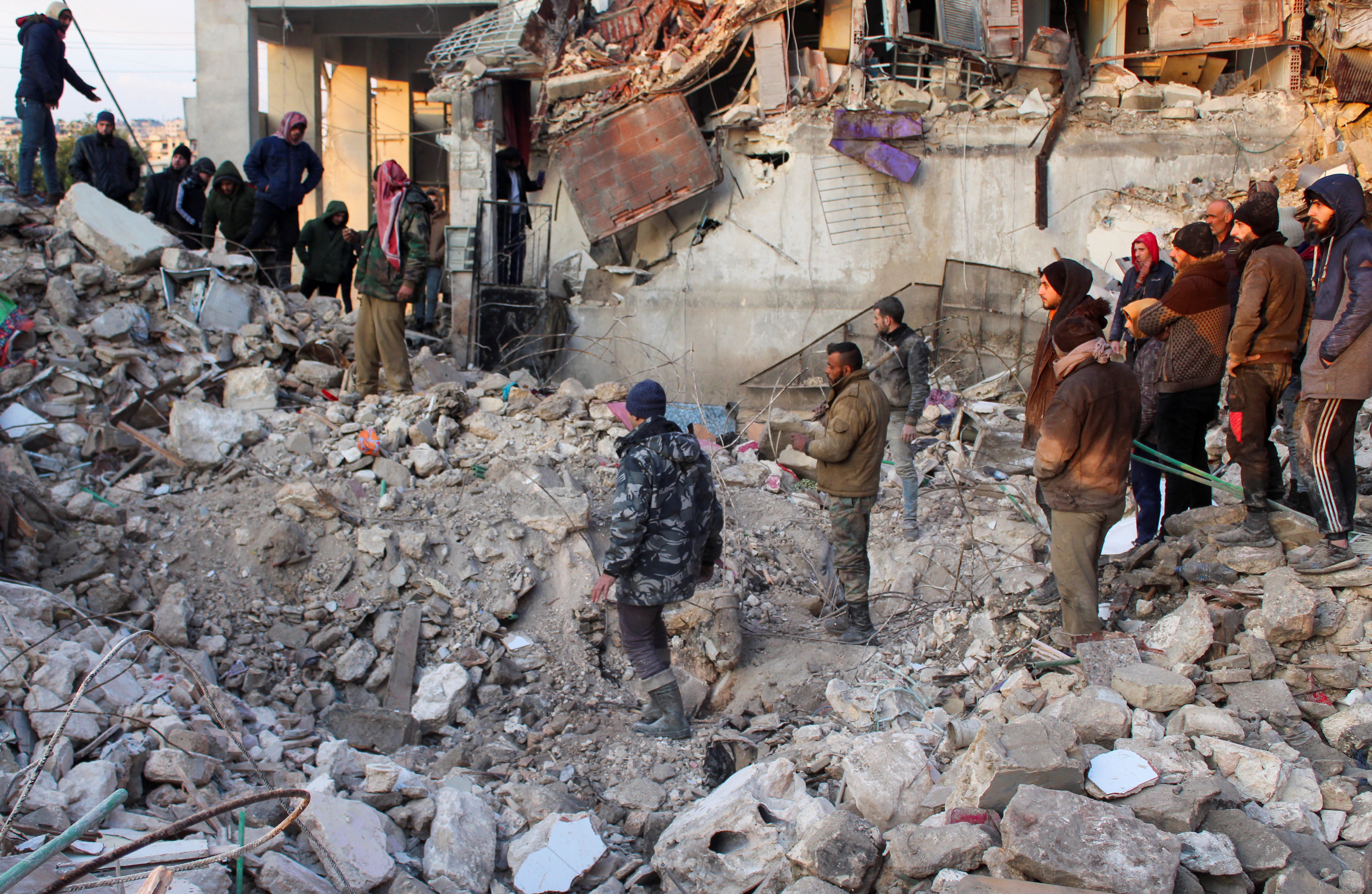Time is running out to save hundreds of families trapped under the rubble of buildings brought down by Monday’s earthquake, the head of the Syrian opposition-run civil defence service said on Tuesday.
Raed al-Saleh told Reuters urgent help was needed from international groups for the rescue effort by the organisation known as the White Helmets in rebel-held northwest Syria, where hundreds were killed and injured.
“Every second means saving lives and we call on all humanitarian organisations to give material aid and respond to this catastrophe urgently,” he said.
The magnitude 7.8 earthquake hit Turkey and Syria early on Monday, toppling apartment blocks, wrecking hospitals and leaving thousands of people injured or homeless.
At least 1,444 people were killed in Syria and about 3,500 injured, according to figures from the Damascus government and rescue workers in the northwestern region controlled by insurgents.
Rescue teams worked early on Tuesday to free people trapped in the rubble of buildings in southern Turkey as the death toll in that country rose to more than 3,400.
In areas hit by the earthquake in northwestern Syria, rescue efforts were hampered by lack of equipment and freezing conditions. Rescuers cleared piles of debris using makeshift tools and their hands.
“There are a lot of efforts by our teams but they are unable to respond to the catastrophe and the large number of collapsed buildings,” al-Saleh said.
Syria’s Emergency Response Team, a non-governmental organisation that operates in the rebel-held enclave, said snow storms had closed roads within makeshift camps that house tens of thousands of displaced Syrians.
“We have great difficulty in getting heavy equipment because of the large spread of places that were affected,” said Salamah Ibrahim, a senior rescuer operating in the city of Sarmada, where a whole neighbourhood fell to the ground.
The rebel-held enclave in the northwest of Syria is a refuge for around four million people, many of whom have been uprooted by a Russian-backed Syrian government assault that turned the tide in favour of President Bashar al-Assad during the more than decade-long Syrian conflict.
“Most of the hospitals are full and the situation is catastrophic. We are in need of medicines urgently to cover the needs,” said Zuhair al Qarat, head of the health authority in Idlib city.
Damage was also widely seen in government-held Aleppo city’s eastern sector, whose buildings bore the brunt of intensive aerial bombing by Russia and the Syrian military to push out rebels in 2016, according to rescuers and aid workers.







Click here to change your cookie preferences